
What we do
Making sustainability everyone’s first choice
As a global organization with boots and brains on the ground, we work throughout supply chains to make genuine sustainability the norm. A norm that’s informed and co-designed by the producers themselves, not dictated by the powerful companies that dominate global industries.
We optimize the situation both on-farm and along the chain by introducing ‘planet-proof’ use of natural resources, increased sustainable production with a strong focus on circularity and with improved economic outlook.
To prevent further degradation of soils, we support farmers transitioning towards more resource-efficient, circular, and regenerative production methods. To protect our water quality, we support them to improve water quality, reuse wastewater, and minimize the release of hazardous chemicals from agriculture. For clean air, we organize learning and exchange on how to reduce harmful emissions, disposals and toxins in production.
To mitigate the effects of climate change, we promote ways of agriculture that sustainably increase productivity, enhance adaptive capacity, and reduce or remove greenhouse gas emissions where possible. We also promote climate smart practices that store more carbon dioxides, for example by using tree cover practices. We promote circular approaches to agriculture and help farmers to decrease their dependency on pesticides and antimicrobials, reduce excess fertilisation, increase organic farming, improve animal welfare, and reverse biodiversity loss.
To achieve more decent working conditions in agriculture, industry and mining – with fair payment, we offer training to governments, mines and factory management and farmers on healthy and safe workplaces, gender inclusion, and equal opportunities creation. We also organize dialogue platforms and negotiation tables on specific ILO-conventions with expert organizations. In collaboration with international organizations and regulators, we create awareness on workers rights, and the need for paying a true living wage.
On farm, a diversified portfolio of products reduces the risks that come with market fluctuations and creates new market opportunities. Solidaridad will help farmers optimize production and management practices on the farm by finding a new balance between their production for global supply chains and production of new crops to meet the increasing demand for healthy, fresh and safe food products in their nearby urban markets.
Solidaridad also supports processors, such as miners, or processors in the leather or textiles industry, to implement more efficient methods to reduce pollution of soil, water, and air. We support processors to improve water quality and minimize the release of hazardous chemicals from their activities. We train service suppliers to treat and reuse wastewater and organize matchmaking with factories, mills or mines. Water efficiency expertise to address scarcity is being organized from around the globe via the broad network of Solidaridad contacts. And just as with farmers, we also organize learning and exchange for processors on how to reduce harmful emissions, disposals and toxins. Solidaridad also looks for options with processors to intensify the use of local renewable energy away from deforested charcoal and other highly air-polluting emitters.
We create stronger linkages between producers and markets. We connect producers at the beginning of the supply chain to other actors in the sector, to knowledge, services and capital. Digital solutions and technology play an important role to change the realities here.
For smallholder farmers to achieve higher levels of efficiency and profitability, affordable quality inputs and services are essential. To increase and improve producers’ access to proper quality inputs and services, including finance, Solidaridad supports small and medium service and input providing businesses. We support these SMEs in the business ecosystem of the farmer by providing them with access to finance, access to clients (linking them to farmers and miners who can use their services), business support services to professionalize their operations and governance, and by supporting them in making their services and products more gender and youth friendly.
We also stimulate farmers to expand their business towards increased ownership in supply chains. So instead of just producing the raw product, farmers are supported to also gain ownership in activities closer to the end consumers market. Think hereby of processing, packaging, wholesale or transport. A good example are the farmers’ markets where farmers sell their products directly to the consumers. This way, they can get a better margin on their products and increase profits. We also actively look for entrepreneurs further up the chain from farm to fork who are willing to increase ownership for farmers in their companies.
For many farmers, who only own small pieces of land, farming will never become a profitable business. Also, farm workers are among those struggling hard to survive and fear redundancy as a result of modernization. Despite all our efforts, some farmers and farm workers will need to find employability elsewhere. We want to help them with this. Therefore, we train and retrain workers to acquire new skill sets with the objective to improve their overall employability towards high skilled, more decent, and better paid jobs.
We ensure farmers’ and workers’ perspectives are taken into account in public and private policies for decent working conditions, equitable access to and sustainable use of natural resources and fair distribution of value and benefits throughout the chain. Ideally, there is a smart mix of mandatory, voluntary, national, and international measures that are needed to foster business respect for human rights.
In all our policy work, we aim to expand the influence of producers and producing countries on inclusive sustainability policies. Currently, many internationally established sustainability guidelines and due diligence standards are too much dominated by western countries. Poor producers often cannot always comply with the high entry criteria. National standards put more focus on including producers, moving the ownership and influence of sustainability standards from the big companies to the producers. So we work with governments on national standards and mandatory policy and legal frameworks that are inclusive, in balance with nature, and bringing prosperity to the producers, also the hard to reach.
We bring civil society to the table in multi-stakeholder platforms, giving them space to voice their opinion and ensuring that their views are heard. On top, we help with the formulation and implementation of concrete action points for change. This will amplify the voices of producers and their stakeholders and help to gradually reform sustainability from an establishments’ toy, to a lived experience from those who are seeking freedom of speech.
Citizens can play an important role in pressuring the public and private sector. Solidaridad mobilizes, activates, and engages citizens to change norms about decent work, natural resource management, fair value distribution, and sustainable consumption and to influence the policy agenda on these topics. Through awareness-raising campaigns, social movements and publications, we adress, for example, value distribution in the supply chains, gender norms, and production practices.
Our active network on lobby, advocacy and policy influencing spans from local, via regional, and national into the international realm. Solidaridad will also lobby larger trade blocks, such as the European Union, and use its position in roundtables and other industry platforms to influence on all levels in parallel.
But we don’t limit our policy influencing to governments and industry platforms. We also look for entrepreneurs and financial institutes who truly believe in inclusive shareholder models with the aim to redistribute the created wealth back to the beneficiaries as partnering shareholders. We pilot and support new forms of engagements with corporations such as social enterprises, steward corporations, and hybrid enterprises. All with the aim to empower farmers and workers in obtaining capital assets, ownership, and ultimately more control over their own destiny.
We will also encourage corporates to pay a decent price: the market price, plus the unpaid external costs. This includes hidden costs like pollution, or negative effects of damage to the environment for future generations. True price should also guarantee a decent income for producers. This should be more than the official standards for living income which are often so low that people can hardly survive on it.
We campaign to encourage consumers, companies and public procurement agencies to source and buy sustainable products.
In order for sustainable practices to become truly successful, there needs to be a demand for sustainably produced products. That is why we also work on the demand side of the market. Historically, we have worked with private companies in international supply chains and consumers in Europe, and the US. But increasingly, we expand our scope to local consumers in the global south, especially in the (mega)cities, and to local private companies and governments in their role of public procurers.
We want to see companies walk the talk and increase their sourcing from sustainable supply chains of products grown and produced in low- and middle-income countries and we want them to pay a fair price for it. We encourage front running companies to show their leadership, influencing the sector to a higher standard. We support retailers and brands to increase sourcing of sustainable products with a traceability solution, providing transparency on external costs, making use of digital tools and verified fair farmer data leading to a more fair value distribution.
Consumer spending drives almost 70 percent of the economy of high-income countries. A growing group of consumers in Europe, Japan, and the US say they want to buy from purpose-driven brands that support sustainability. Media engagement and public campaigns aimed at consumers will help to publicly praise brands that are well on their way, while calling upon those who need to change faster. This reputation risk motivates brands to work on genuine sustainability in their value chain.
Public procurement also covers a large part of the market. Governments and state-owned enterprises like hospitals and schools can be an important driver for sustainable production by purchasing sustainably produced goods, from nearby circular food systems. This will not only reward farmers and local food businesses, but also the health of many people on unhealthy diets in urban slums.
We can produce more with lesser costs, because we use less herbicides, pesticides and fertilizers, since there is a green cover. And if there are more volumes, there is more money.
Carlos Horoszczuk, Participant in Solidaridad’s Tea programme since 2012, Argentina

Solutions
Our sustainability solutions
We’re always looking for innovative approaches to achieve our goals and never hesitate to adopt more sustainable solutions
In order to make data work for farmers, we facilitate the emerging Fairdata movement, driven by the principle that any economic value arising from smallholder farmer data should be for their benefit. Fairdata has the potential to provide a fair and transparent governance structure for agricultural data. With this information farmers can build their own pathway to prosperity.
We work on reducing the environmental footprint of regional food systems, strengthening resilience against climate change, increasing food security, promoting healthy diets and reducing food waste.
Within this area we focus on sustainable food production, food processing, wholesale, retail and hospitality.
When agriculture scales up, workers fear becoming redundant. We train people to find employment elsewhere. We also work on digital data solutions and the introduction of mandatory standards to move decent work and working conditions beyond a compliance issue. By creating green jobs we increase the market for services or goods that benefit the environment and conserve natural resources. We pay particular attention to supporting women and youth as they are disproportionately affected by unfair labour conditions
We aim to bring company or supply chain control back into the hands of purpose-oriented owners. We do this by stimulating new models such as forward integration (farmers keeping a bigger part of the chain in their own hands), steward ownership (companies with self-governance where profits serve purpose), broad-based ownership models (companies using business as a force for good), and purpose-driven family companies.
Through Solidaridad’s guidance and support, we now have 10,000 seedlings as a group, which has never happened in this community.
JOSEPH OWUSU ANSAH, PARTICIPANT IN THE SUSTAINABLE WEST AFRICA OIL PALM PROGRAM
Programmes
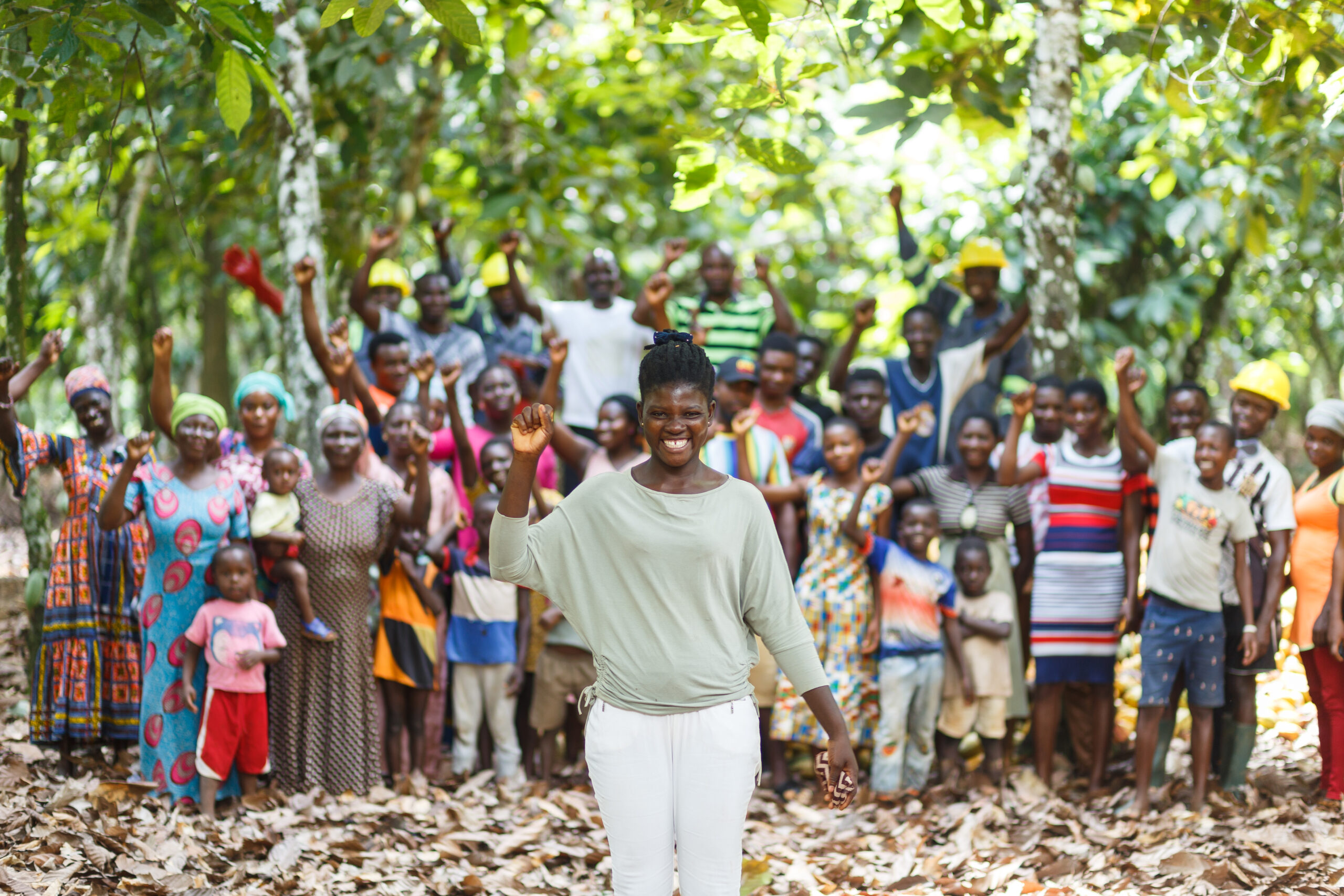
RECLAIM Sustainability!
The RECLAIM Sustainability! programme (2021-2025) with Fairfood, TrustAfrica and Business Watch Indonesia is implemented in the following countries: Ghana, Sierra Leone, Ivory Coast, Zambia, Malawi, Mozambique, Kenya, Uganda, Ethiopia, Egypt, China, India, Bangladesh, Indonesia, Honduras, Colombia, Peru, and the Netherlands (in the larger European context). The programme is active in the commodities: cocoa, coffee, tea, palm oil, cotton & textiles, and gold; with a special focus on the local food systems in Africa.
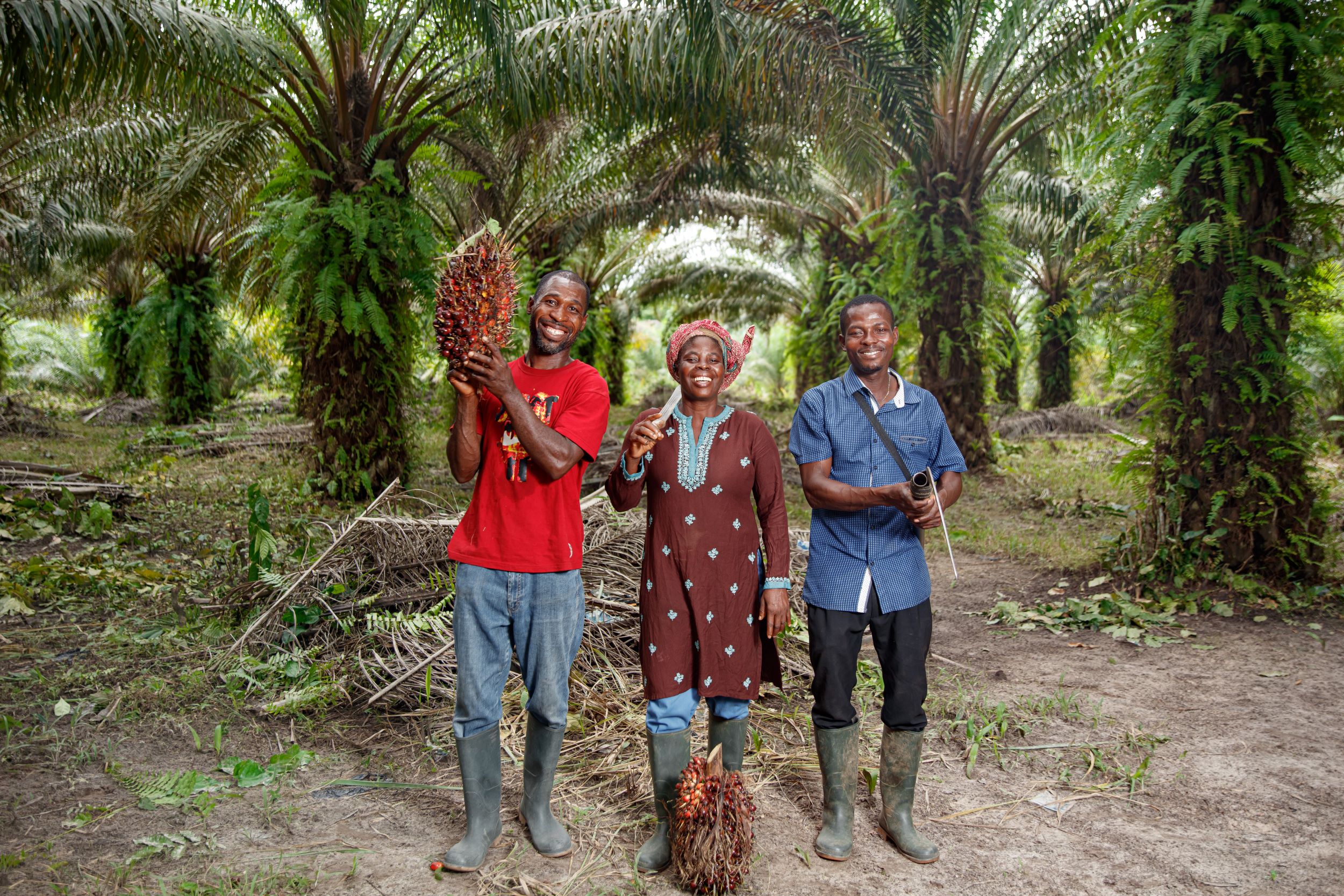
NISCOPS
Taking place in landscapes across Nigeria, Ghana, Colombia, Malaysia and Indonesia, with a focus on European and Asian markets (including India), the National Initiatives for Sustainable and Climate Smart Oil Palm Smallholders aims to close the sustainability gap in palm oil production.up!
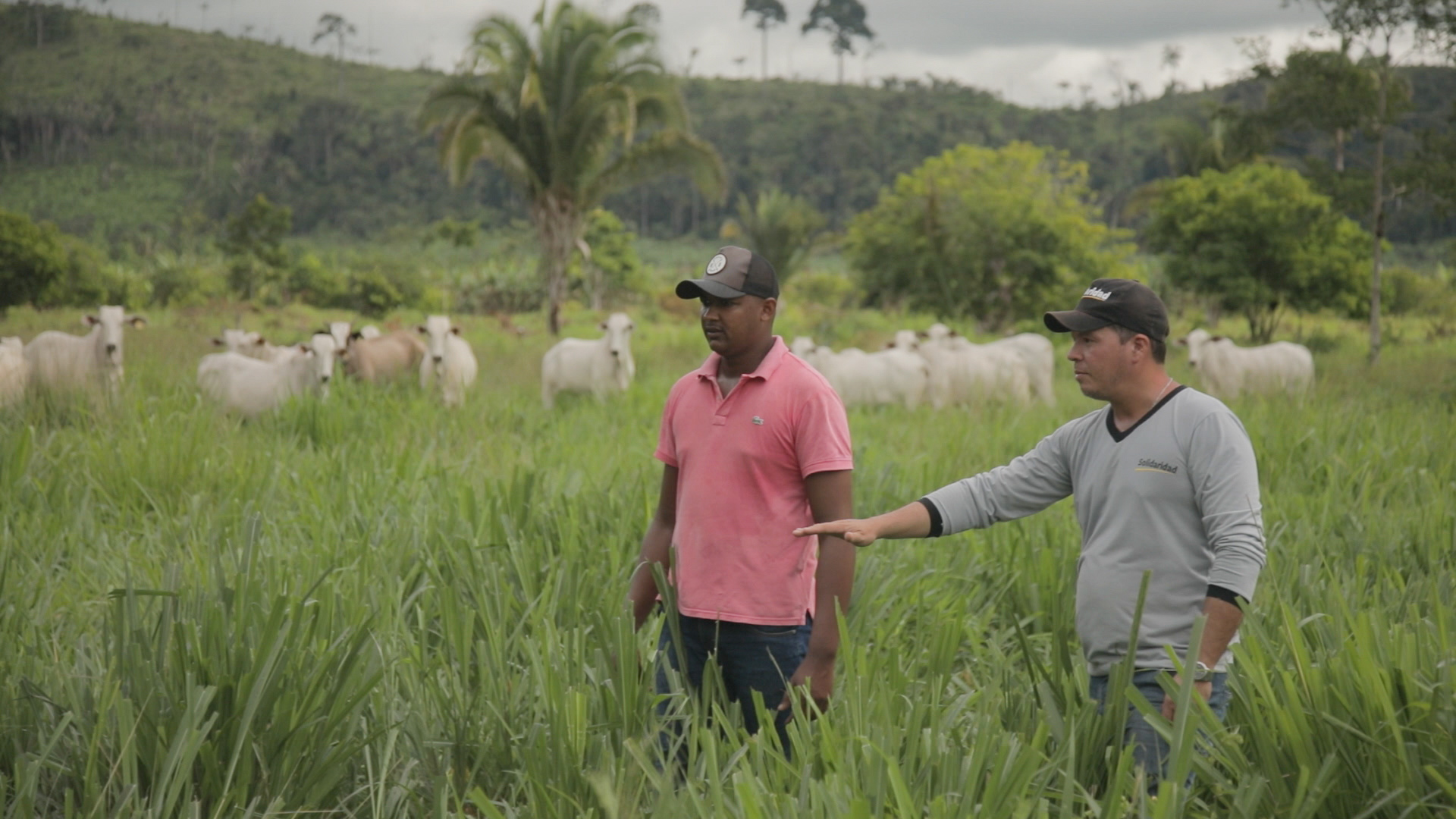
Amazonia Connect
Amazonia Connect is a partnership between USAID, Solidaridad, Earth Innovation Institute, the National Wildlife Federation, and the University of Wisconsin-Madison. Together with USAID’s Amazon Regional Environment Program, producers, companies, local governments and financial institutions, Amazonia Connect promotes and scales the adoption of low-emission commodity production to improve biodiversity conservation and support climate action in Brazil, Colombia, and Peru.
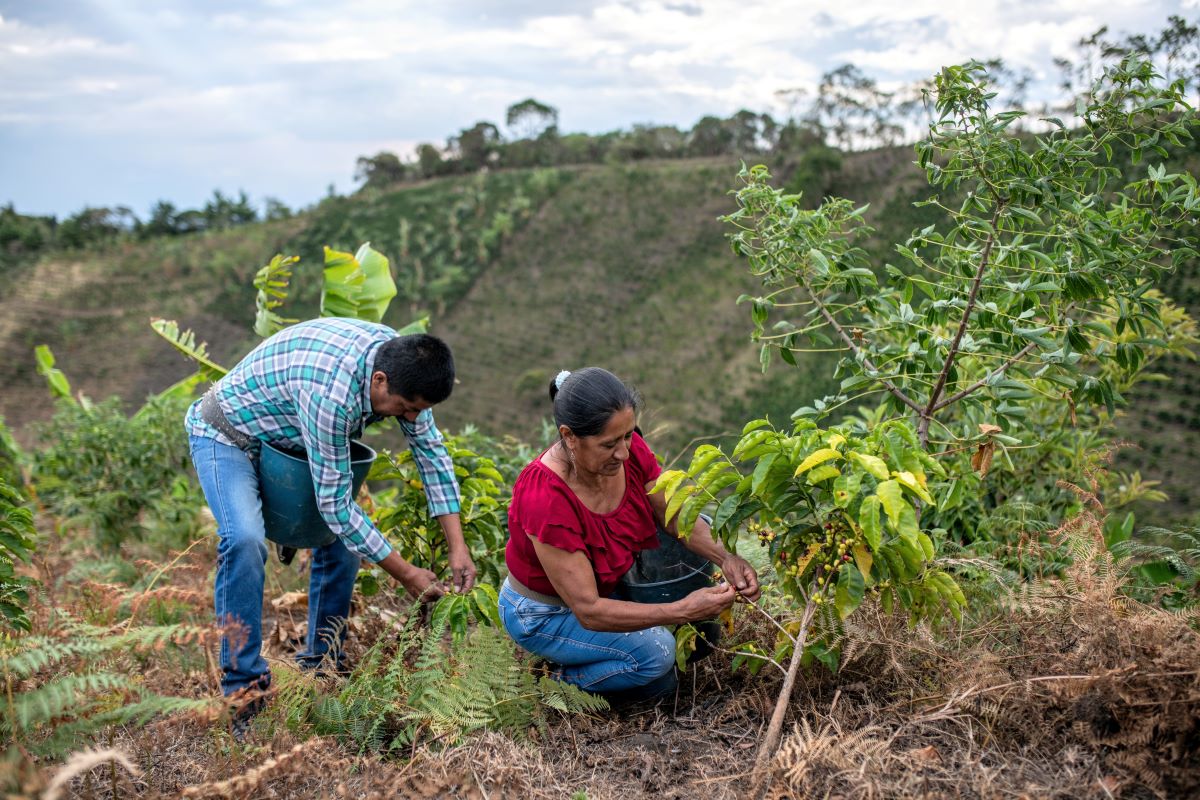
Climate Heroes
The Climate Heroes programme aims to improve farmers’ resilience to a changing climate by providing technical support, access to finance, and access to carbon markets. By applying agroforestry practices, small-scale coffee and cocoa farmers are improving their quality of life and the local environment.
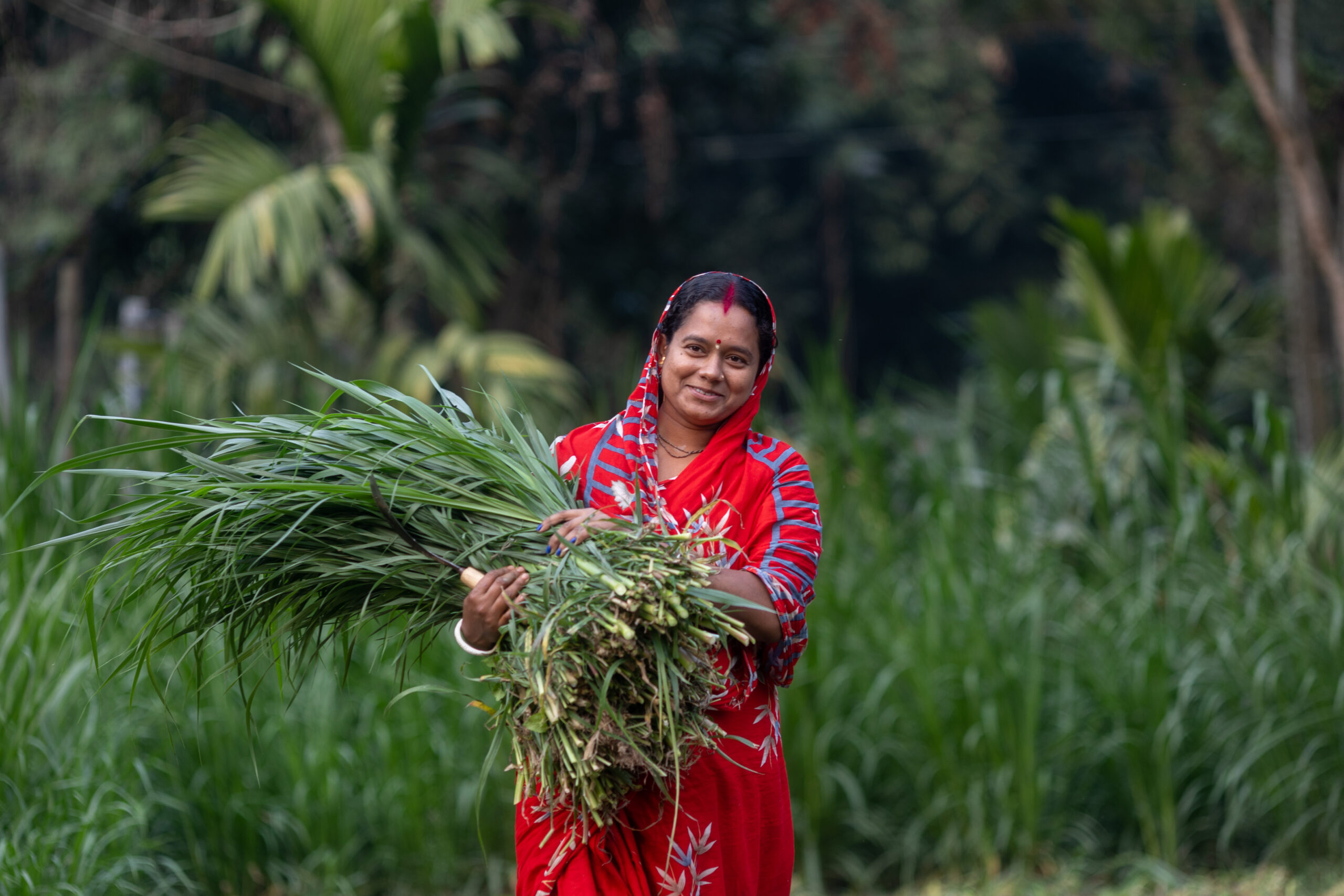
PATHWAYS TO PROSPERITY
With our Pathways to Prosperity programme, Solidaridad continues the work towards long-term sustainability and inclusivity, with our ultimate ambition being transformative system change that benefits all equally.
